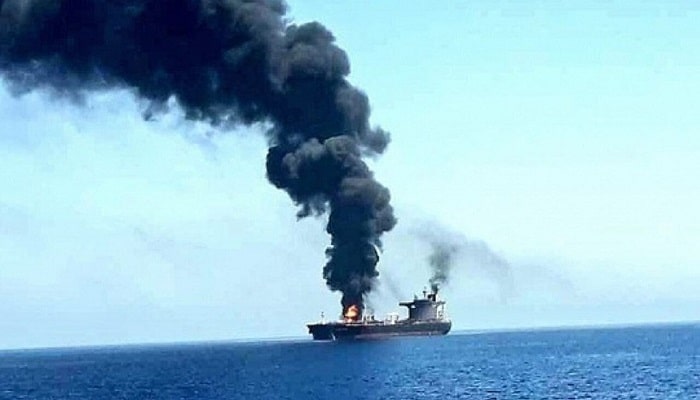PNN – The Lebanese newspaper Al-Akhbar wrote that Sanaa, through a combination of media and military measures, has positioned itself as the undisputed ruler of the Red Sea and Gulf of Aden.
According to the report of Pakistan News Network, Al-Akhbar added in an article titled a combination of military and media tools; Sanaa has strengthened its naval influence: Sanaa has established its presence in the Red Sea, combining “humanitarian action and the imposition of rules of engagement,” while America’s options are limited and its reliance on local factors.
The media outlet continued: It is no exaggeration to say that the Red Sea is currently under the direct administration of Yemen, and this was achieved when Sanaa was able to present itself, according to a calculated plan, as a central actor and the one who establishes order in the ships, which has surrounded Israel and cut off its maritime arteries.
The newspaper added: This development is not limited to the military dimension, but Sanaa has also acted strongly in coordinating humanitarian activities, establishing the presence of Yemenis in this waterway, and defining the rules of engagement according to Ansarullah’s perspective.
Read more:
Financial Times acknowledges Yemeni operation in Red Sea as successful
According to Al-Akhbar, in response to this trend, the United States has been very cautious in trying to get less directly involved, with the US Department of Defense relying on local agents loyal to the Aden government to counter what it claims is Iranian arms smuggling into Yemen.
General Brad Cooper, the new commander of US Central Command, praised these local elements and claimed that they play an important role in preventing Iran’s support for Ansarullah and ensuring shipping. But this praise, which has been repeated three times in recent days, reflects the limitations of America’s options and the fact that Washington has been forced to hand over the strategic mission to the local side, especially in a situation where Sanaa has established its own rules in the Red Sea and turned it into an arena for direct Yemeni influence away from the American umbrella.
In these contradictory circumstances, Ansarullah has updated the FAQ website of the Humanitarian Coordination Center, which the movement uses as a tool for its activities in the Red Sea and the Gulf of Aden.
The Maritime Executive Center, a center for maritime navigation news, has highly praised the professionalism of this website and its unique design, which is superior to many other pages and websites in the region, as this website is able to convince users of the rightness of Sanaa’s demand.
It is noteworthy that this page requires passing ships to communicate directly with the Sanaa authorities through special channels and, beyond that, requires ship owners to request safe passage 48 hours before the passage and provide precise details of the ship’s name and route.
From the perspective of the Maritam Center, this method of Ansarullah serves as a source of information that allows Ansarullah to monitor the movement of ships and determine possible targets for its military operations, especially those linked to Israel or Western companies.
Al-Akhbar continues its article with the following: The UK Maritime Operations Authority remains the most reputable body in the maritime security sector, acting cautiously in its guidance and limiting itself to general recommendations. And it does not definitively state that ship captains must communicate with the Sanaa center or comply with its demands, leaving the decision to the captains’ discretion, which reveals the gap in international maritime protection mechanisms.
Notably, the Sanaa authorities’ page uses what they call pre-punishment notices, which they say have been sent to 64 shipowners accused of violating the blockade imposed on Israeli ports; Although it did not publish a complete list and only mentioned the names of 15 American defense companies, it is a step with political and military dimensions and reveals the ability of this movement to employ psychological and media warfare within the framework of naval combat.
Al-Akhbar wrote: This is while the marine risk consulting firm Vanguard Tech warned mid-last week that the Humanitarian Coordination Center and its accompanying FAQ service should not be trusted as an alternative risk assessment center. Because what is being done is not merely a technical service, but a strategic move aimed at legitimizing Ansarullah’s power and shaping the maritime narrative in its favor in light of the obvious inability of Western fleets to enforce their previous rules.

